Environmental Health
From where you live, work, and exercise, to what you breathe, eat, and drink, the environment is constantly shaping our health.
This interconnectedness is studied via a broad scientific area referred to as environmental health, which focuses on the relationship between human health and the environment.
The World Health Organization made the infographics shown here to show the impact of the environment on the global population.
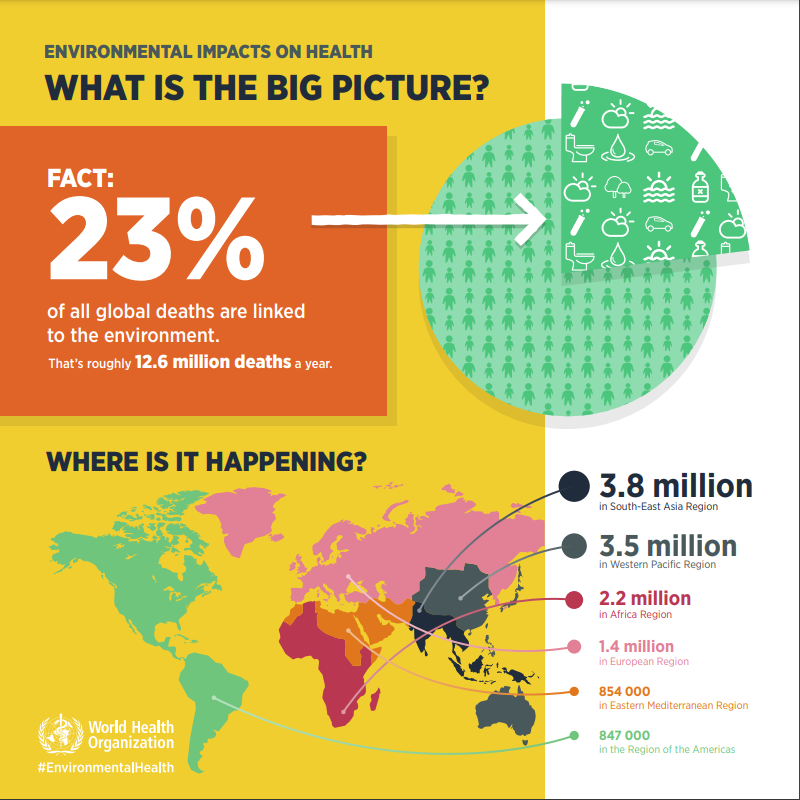



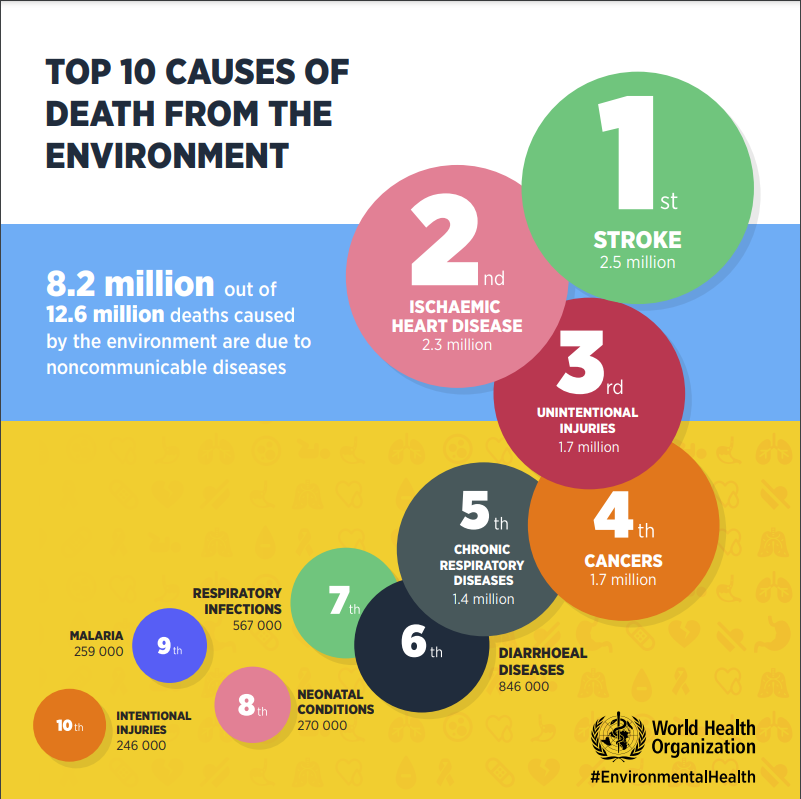





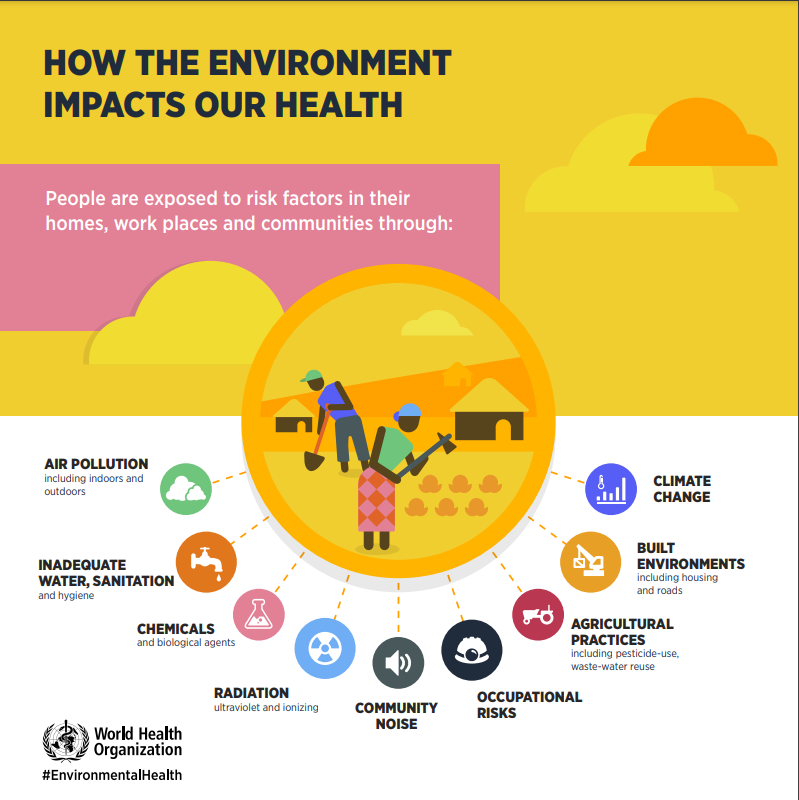





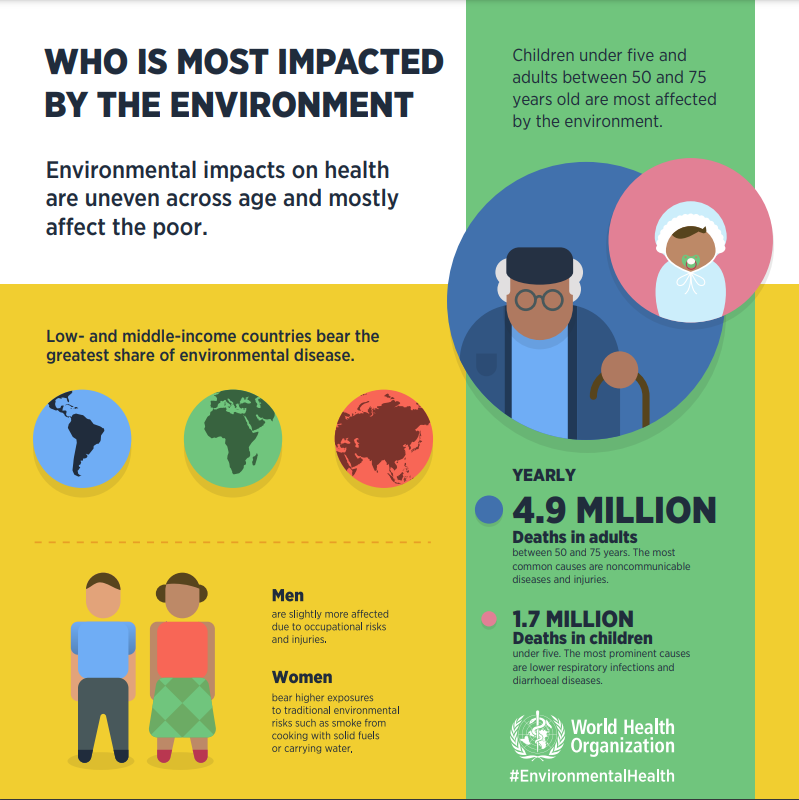





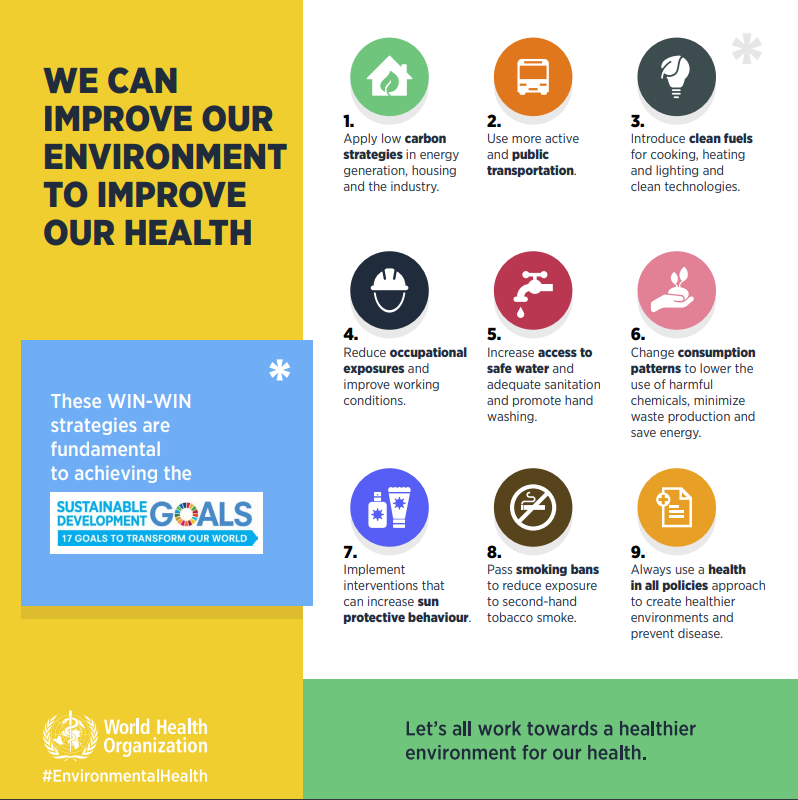





This relationship affects all of us in Georgia
Georgia is in the top 10 states with the worst urban air quality.
Atlanta is one of the most heat-vulnerable cities in the country.
Unfortunately, the effects are not equal. Low-income individuals are more likely to live in polluted areas with less green space. And chronic health conditions are more prevalent in those residing in environmentally-poor living conditions.
In 2019, about 1 out of every 8 Georgians (over 1.3M) were living in poverty.
Thus poverty, the environment, and health are linked. And those living in poverty can become trapped in a vicious cycle: For example: bad air quality is correlated with increased chronic illnesses; being out sick leads to poor performance in work or school; poor performance leads to an inability to get ahead; this leads to living in unhealthy environments; and the cycle continues.
In 2020 Science for Georgia’s SciTober Fest focused on Breaking the Cycle of Environmental Health Disparities. Read the full article to learn more.
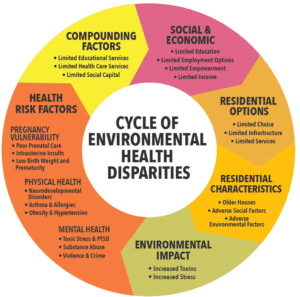
What Can We Do?
The good news is that cycles can be transformed from vicious to virtuous through external, disruptive, change. And every positive step we take can creative positive impacts.
Individual Actions All of Us Can Take
Cut down your single use plastics. Recycling them is harder than you think.
Cut down on food waste and compost the inevitable by products.
Lean how to have a larger impact on composting in your neighborhood.
Advocate for change
Two Bills (HB 339 and HB 423) look at different aspects of Environmental Justice impacts.
Advocate for better disposal and storage of Coal Ash a harmful bi-product of coal energy production.
